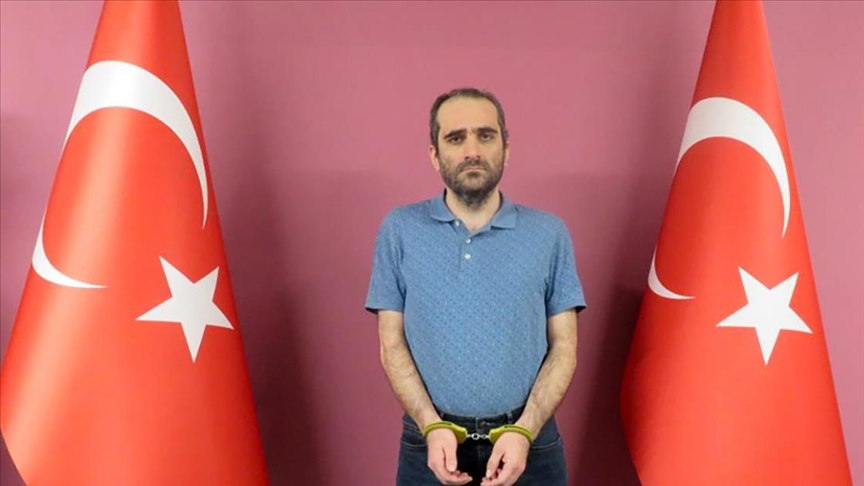Turkish spies have arrested and brought back to Turkey a nephew living in Kenya of Islamic scholar Fethullah Gülen, who is accused by the Turkish government of masterminding a failed coup in Turkey in 2016, the state-run Anadolu news agency reported.
The Gülen movement, inspired by the views of the US-based scholar, strongly denies any involvement in the failed putsch, which sparked a government-led crackdown on the group.
Anadolu reported that Selahattin Gülen was brought back to Turkey by agents from Turkey’s National Intelligence Organization (MIT), quoting unnamed security sources, but did not say which country he was arrested in.
The agency published a photograph of the detainee in handcuffs with a Turkish flag on either side but did not say whether the MİT operation took place with the coordination of the host country.
On May 19 President Recep Tayyip Erdoğan announced in televised remarks that they had recently apprehended an important member of “FETÖ,” a derogatory term coined by the Turkish government to refer to the cleric’s faith-based Gülen movement as a terrorist organization, adding that he would soon announce that person’s identity.
Hours after Erdoğan’s revelation, Selahattin Gülen’s wife Seriyye released a video on YouTube in which she said her husband went missing on May 3 in Kenya, where he has been living for the past seven months.
“I haven’t heard from him [since May 3]. … At this point, I don’t know how, but I think it’s very likely that he was abducted [by people working for the government] and taken to Turkey on May 5,” she said.
Gülen also alleged that her husband was kidnapped solely because he was related to Fethullah Gülen, calling on authorities to find Selahattin Gülen and release him immediately.
Selahattin Gülen’s brother Kemal Gülen, a journalist and TV host who is also in exile, tweeted that his brother was kidnapped in Kenya and forcibly taken to Turkey despite the fact that the Kenyan courts had ruled against his extradition.
The incident follows the enforced disappearance of nearly 30 people with real or alleged links to the Gülen movement since the failed coup.
Some of the enforced disappearance victims in Turkey have spoken out in court, after they were found in police custody, recounting the systematic and severe torture they were subjected to during their interrogation by government operatives, who, victims said, waited until their wounds had healed to hand them over to the police.
According to a recent report by Freedom House on global transnational repression Turkey has become number one among countries that have conducted renditions from host states since 2014. The Turkish government has pursued its perceived enemies in at least 30 different host countries spread across the Americas, Europe, the Middle East, Africa and Asia since July 2016.
“Ankara’s campaign has primarily targeted people affiliated with the movement of religious leader Fethullah Gülen, which the government blames for the coup attempt,” the report said.
Although both Gülen and the members of his group strongly deny any involvement in the abortive putsch or any terrorist activities, Erdoğan’s ruling party has jailed some 96,000 people while investigating 622,646 over alleged links to the movement as part of a massive purge launched under the pretext of an anti-coup fight, according to official data.
In addition to the thousands who were jailed, scores of other Gülen movement followers had to flee Turkey to avoid the government crackdown.
The Turkish government has been targeting members of the movement, which conducts educational activities as well as charity work around the world, since corruption investigations in late 2013 that implicated Erdoğan’s close circle. The government’s war o the movement culminated in the aftermath of the 2016 coup attempt.

